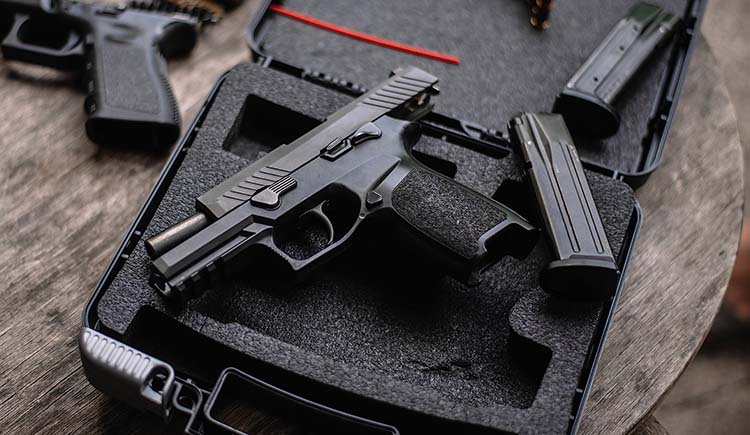Navigating firearm laws can be tricky, especially in a state as large and diverse as Texas. With recent changes in legislation, many Texans wonder whether they need a license to carry a handgun (LTC) and what the rules entail. This guide will help clarify Texas gun laws, the requirements for carrying a handgun, and what you need to know to stay compliant.
Texas Gun Laws Overview
Texas is known for its strong firearms culture, and its gun laws reflect this. Generally, residents of Texas have the right to bear arms under the Second Amendment of the U.S. Constitution and the Texas Constitution, but specifics on carrying a handgun are governed by state law.
Under Texas law, residents can carry firearms in two primary ways:
- With a License to Carry (LTC).
- Under the permitless carry law, which became effective on September 1, 2021.
Understanding the key distinctions between these options and the regulations they come with is crucial to safely and legally exercising your rights.
License to Carry in Texas
The License to Carry (LTC) is the traditional route for Texans to legally carry a handgun in the state. While not mandatory under certain circumstances thanks to Texas’ permitless carry law, an LTC does come with notable advantages.
Requirements for Obtaining an LTC
To obtain a Texas LTC, applicants must meet the following requirements:
- Be at least 18 years old.
- Pass a background check ensuring no felony convictions, certain misdemeanor convictions, or pending charges.
- Complete a state-approved training course and pass both a written test and a shooting proficiency test.
Applications can be submitted online through the Texas Department of Public Safety (DPS) website, making the process straightforward.
Benefits of Having an LTC
Even though Texans can carry handguns without a license in some situations, an LTC still provides distinct advantages:
- Ability to carry in reciprocity states that recognize Texas’ LTC.
- Bypass background checks when purchasing firearms
- Carry in more locations with an LTC.
- Legal protections from the state only available to LTC holders
- Proof of training and understanding of firearm laws, which could be beneficial in disputes or legal scenarios.
Having an LTC also signals a commitment to responsible gun ownership through education and compliance with legal standards.
Texas Permitless Carry
The passage of the Texas permitless carry law (also referred to as “constitutional carry”) marked a significant shift in the state’s approach to firearm laws. Texans can now carry handguns in public without needing an LTC, but this comes with conditions.
Requirements for Permitless Carry
To qualify for permitless carry in Texas, individuals must:
- Be at least 21 years old.
- Not have any felony convictions or specific misdemeanor convictions (e.g., domestic violence offenses, etc).
- Not be otherwise prohibited by state or federal law from possessing a firearm.
Permitless carry applies to many public spaces in Texas, but it’s important for individuals relying on this option to fully understand the laws and restrictions.
Carry Restrictions
Permitless carry does not mean unrestricted carry. Even those eligible for constitutional carry face limitations:
- Private businesses can prohibit firearms on their premises with ANY no gun sign.
- Certain government buildings and properties (like courthouses and polling places) remain gun-free zones.
- Intoxicated individuals cannot legally carry a firearm in public.
- Must abide by same prohibited locations as LTC holders
- No legal protections provided by the state
Failing to comply with these restrictions could result in serious legal consequences.
Places Where Carrying Is Prohibited
Whether you have an LTC or rely on permitless carry, there are specific locations where firearms are strictly prohibited. These include:
- Schools, colleges, and universities (unless permitted under certain laws).
- Polling places on election days.
- Courthouses and courtrooms.
- Secured areas of airports.
- Amusement parks.
- Medical and mental health facilities.
- Businesses that derive more than 51% of their income from alcohol sales for onsite consumption (e.g., bars).
Always keep an eye out for legal signage indicating that firearms are not allowed. Even if you meet the legal requirements for carrying, violating these restrictions could lead to penalties.
Penalties for Violations
Violating Texas gun laws can result in substantial legal and financial consequences. These penalties may include:
- Misdemeanor charges for lesser violations, such as carrying past a no gun sign on private property.
- Felony charges for severe offenses, such as carrying a firearm at a prohibited location.
- Significant fines, potential jail time, and a permanent criminal record, which might bar individuals from firearm ownership in the future.
Being informed and adhering to established regulations is essential to avoid these life-altering consequences.
Understanding and Complying With Texas Gun Laws
The ability to carry a handgun comes with both rights and responsibilities. Whether you choose to obtain an LTC or rely on permitless carry, understanding the rules and ensuring compliance can help you stay safe and within the law.
If you’re new to Texas gun laws or considering obtaining an LTC, take the time to research your options and stay up to date on any legal changes. Being a responsible gun owner means knowing not just where you can carry, but also when and how you’re legally allowed to do so.
Below, we’ve curated some valuable resources to guide you further.
Helpful Resources
- Texas LTC Application and Resources
- Texas State Legislature – Firearms Laws
- Steps to Get Your LTC and How to Apply
- Official Texas LTC Class Online
These resources offer detailed and up-to-date information on Texas gun laws and licensing requirements.
To register for the Official online Texas License to Carry class, go HERE.




